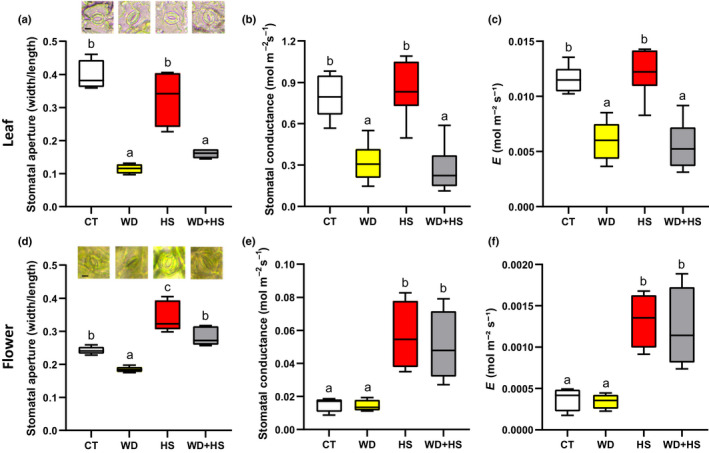Fig. 2.

Stomatal aperture and transpiration of flowers and leaves from soybean (Glycine max) plants subjected to a combination of water deficit (WD) and heat stress (HS). (a–c) Stomatal aperture (a), stomatal conductance (b), and transpiration (E) (c) of soybean leaves from plants subjected to control (CT), HS, WD or WD + HS conditions. (d–f) Stomatal aperture (d), stomatal conductance (e), and transpiration (f) of soybean flowers from plants subjected to CT, HS, WD or WD + HS. All experiments were conducted with three biological repeats, each with 15 plants as technical repeats. Twenty microscopic fields from all parts of sepals or from the middle section of leaves (between the main veins) were measured for each plant. Results are shown as box‐and‐whisker plots with borders corresponding to the 25th and 75th percentiles of the data. Different letters denote significance at P < 0.05 (ANOVA followed by a Tukey's post hoc test). Representative images of stomata are shown in (a) and (d). Bar, 10 μm.
